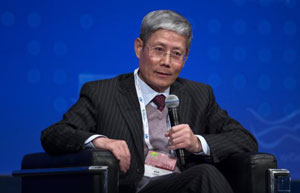Georgia Tech teams with Tianjin U
By Chen Qide in Shanghai (chinadaily.com.cn) Updated: 2014-04-29 08:49Georgia Tech in the US has joined hands with Tianjin University to launch a Master of Science degree program in electrical and computer engineering at the Shenzhen Virtual University Park.
It will be the first top-tier Sino-foreign cooperative education program in Shenzhen, Guangdong province.
"GT sees great development potential in Shenzhen, a high-tech-intensive city with scarce higher education resources compared with other cities in China," Georgia Tech President Bud Peterson said on Sunday.
In Guangzhou, US Consul General Jennifer Zmdahl Galt said the program, together with other cooperative US-China educational programs, is part of the 100,000 Strong Initiative for China that US President Barack Obama announced in 2009.
To date, approximately 68,000 US students have come to China to study Mandarin and learn about the Chinese culture, she said.
Yves Berthelot, vice-provost of Georgia Tech, said GT faculty will teach in Shenzhen on rotational assignments, with admission and degree requirements being the same as those at the school’s base in Atlanta.
Each year, up to 120 students will be admitted to the degree program, including up to 20 who will receive both a Georgia Tech degree and a Tianjin University master’s degree in a related discipline.
Students will be able to complete the program in 12-24 months in Shenzhen, depending on internship arrangements. They will also have the option to spend their last semester in Atlanta or at the Georgia Tech campus in Lorraine, France, further enhancing their global experience, Berthelot said.
Assistance is available for students to pursue co-op or internship opportunities with multinational companies, if they follow a semester of study at Georgia Tech Shenzhen, Berthelot added.
The program will enroll students this autumn, but he said in the first year the school is expected to have 25 to 50 students.
"We plan to have 120 students within three years to balance our budget," he said, adding that the school has received a large amount of donations from alumni as its start-up funds.
Part of the funds will come from the students from Georgia Tech and other American universities who will come to China to study for their last semester, Berthelot said.
Cooperation on occupational education
Education needed on health vaccinations
US educators embark on Chinese quest
- Overseas returnees strive for dreams in Beijing
- Regulator to restart reviews of IPOs
- Top 10 largest stock exchanges
- Cooking, cleaning, washing... all in a 14-hour whirl
- To work, to sleep, perchance to dream
- A job that plays havoc with health
- Daughter's songs keep mechanic humming
- A stitch according to the times
















